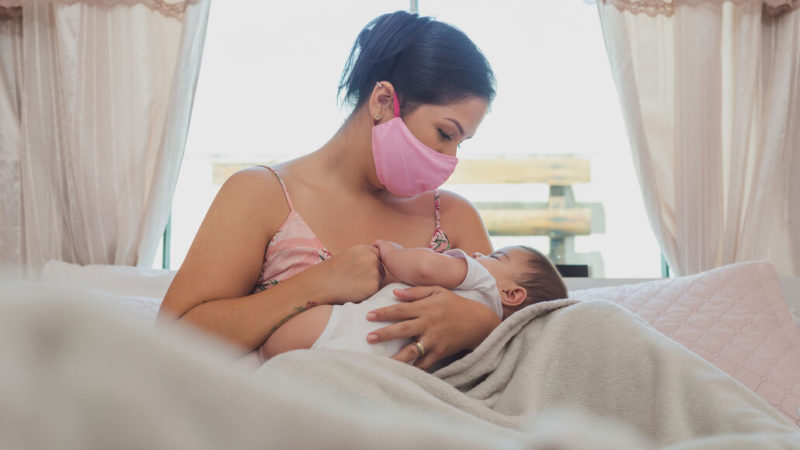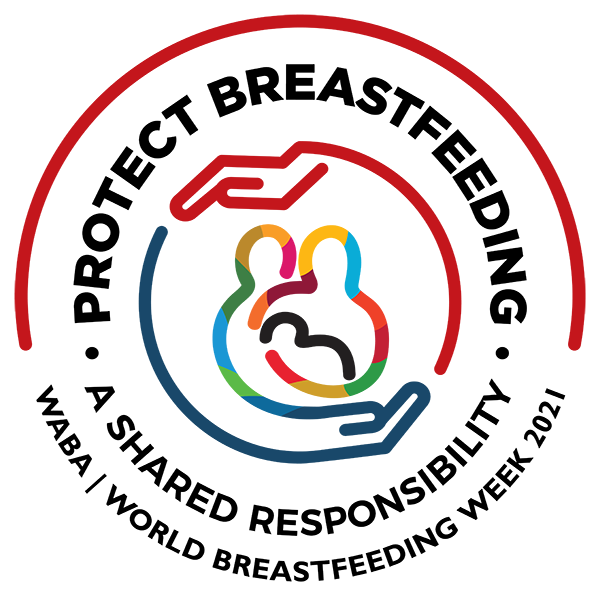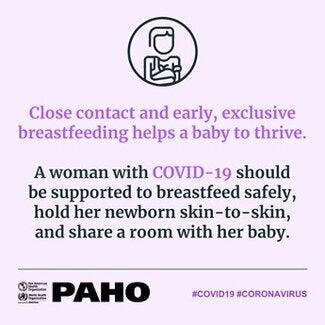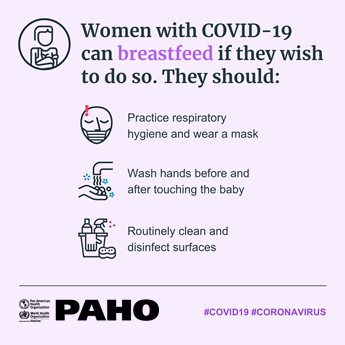
Protecting Breastfeeding; A Shared Responsibility in the COVID era.
The World Breastfeeding Week is an annual celebration dating back to 1991 when the World Alliance for Breastfeeding Action (WABA) was formed, following UNICEF’s Innocenti Declaration of 1990, which formally recognized the importance of breastfeeding for children’s health worldwide. In 1992 World Alliance for Breastfeeding Action (WABA), World Health Organization (WHO), and UNICEF organized the inaugural event intended to promote exclusive breastfeeding for the first six months of a child’s life. Breastfeeding yields many health benefits to children, provides critical nutrients, protects the child from diseases like pneumonia, and fosters growth and development.
Every year, the World Alliance for Breastfeeding Action (WABA) selects a theme to guide the discussions and events of that year. The theme for 2021 is “PROTECT BREASTFEEDING: A SHARED RESPONSIBILITY.” This is derived from thematic area 2 of the WBW-SDG 2030 campaign highlighting the links between breastfeeding and survival health and wellbeing of women, children, and the entire nation.

From our theme of 2021, the effort to improve breastfeeding rates has shifted from focusing on mostly mothers and health care workers to looking across our society and identifying all the contact points with mothers and ways that mothers may be encouraged to breastfeed their babies. However, 2020 and 2021 presented a unique challenge to the breastfeeding campaign in the advent of the novel COVID-19 pandemic. Several challenges and questions remained in the minds of mothers and the public in general concerning breastfeeding and COVID-19. Several mothers remain concerned about whether it is safe to continue breastfeeding children in the face of the virus, whether there exists a risk of cross-infection between mother and child during breastfeeding. Since there appears to be no settled position on these questions, many mothers have since resolved to discontinue breastfeeding children until such a time when there is a settled position.
This article does not attempt to give an answer to the questions or give a definitive position on the same. I will however present some of the positions of the established positions so far where available.
BREASTFEEDING DURING THE COVID-19 PANDEMIC
The COVID-19 pandemic presents numerous challenges to breastfeeding as enumerated above most important being the safety of children and mothers from the virus and its spread. The WHO however recommends that the standard infant feeding guidelines be adhered to during the COVID-19 pandemic. The standard infant feeding guidelines are:
- Initiation of breastfeeding within one hour of birth,
- Exclusive breastfeeding until babies are six months old, and
- Continued breastfeeding along with nutritionally adequate and safe complementary foods, until age two years old or beyond.
The benefits of breastfeeding and the promotion of mother-infant interaction to prevent infection and promote health and development are especially important when health and other community services are disrupted or limited. World Health Organization (WHO) emphasizes that mothers and infants ought to be supported to remain together, and practice skin-to-skin contact and/or kangaroo care whether or not they or their infants have suspected, probable, or confirmed COVID-19 virus infection. Breastfeeding counseling, basic psychosocial support, and practical feeding support should be provided to all pregnant women and mothers with infants and young children.
Will my baby contract COVID 19 while breastfeeding?
According to WHO, COVID-19 has not been detected in the breastmilk of any mother with confirmed or suspected COVID-19. While researchers continue to conduct tests, it appears unlikely that COVID-19 would be transmitted through breastfeeding or by giving breastmilk that has been expressed by a mother who is confirmed or suspected to have COVID-19. Babies who receive breastmilk receive antibodies that protect them from potentially deadly infections like pneumonia, diarrhea, and sepsis.
Does the fear of transmission still linger? I will say it definitely does but this fear can be lessened by mothers and those around them following safety precautions set out by the governments and WHO. This will reduce the chances of the baby acquiring the virus and ensure that the baby continues to receive the immense benefits from the breastmilk.
Tips on keeping the baby safe while breastfeeding
- Continue to breastfeed while taking care of your hygiene
As noted, there is no evidence of COVID-19 detected in breastmilk. Lactating mothers are being encouraged to continue breastfeeding but now with intentional good hygiene practices during feeding. UNICEF recommends 3Ws which include;
- Wear a mask during feeding
- Wash hands with soap before and after touching the baby
- Wipe and disinfect surfaces regularly
If a mother suspects that she may have contracted coronavirus, she may wish to express her breastmilk and feed the baby using a clean cup or cup and spoon.
- Take additional hygiene measures and continue to breastfeed if you fall sick
Preliminary findings indicate that a mother getting coronavirus before or after birth will not in any way hinder the production of immune factors (antibodies) in their breast milk to protect their baby and enhance the baby’s own immune responses. This means that continuing to breastfeed is the best way to fight the virus and protect your baby. If a mother does fall ill with symptoms of Covid 19, they need to seek medical attention immediately as the virus will put them at risk of losing their own life and or even that of their baby. That being said breastfeeding has got to continue and if the mother is too sick, the breastmilk and be pumped and given to the baby by a cup and spoon by a caretaker who also MUST maintain the 3Ws we have mentioned above
More than ever before in this COVID era, “protecting breastfeeding, a shared responsibility” is a call for every one of us to do all that it takes with what is available to us and encourage exclusive breastfeeding among mothers for the good of our children. They are the future generation.


